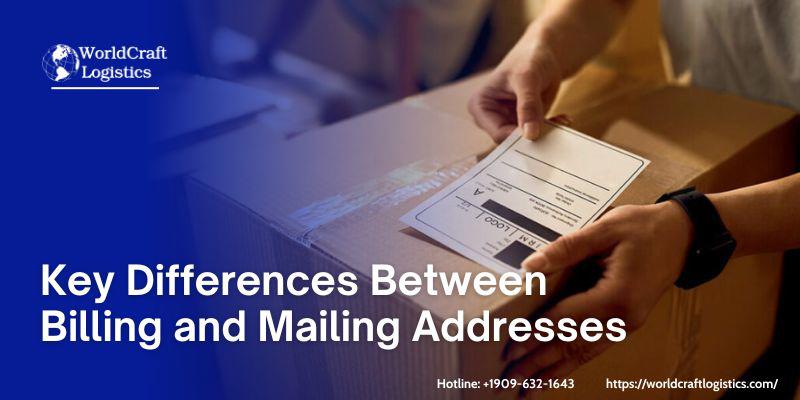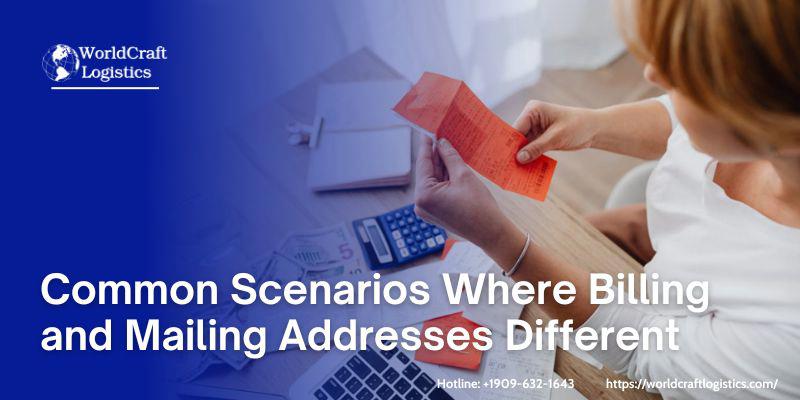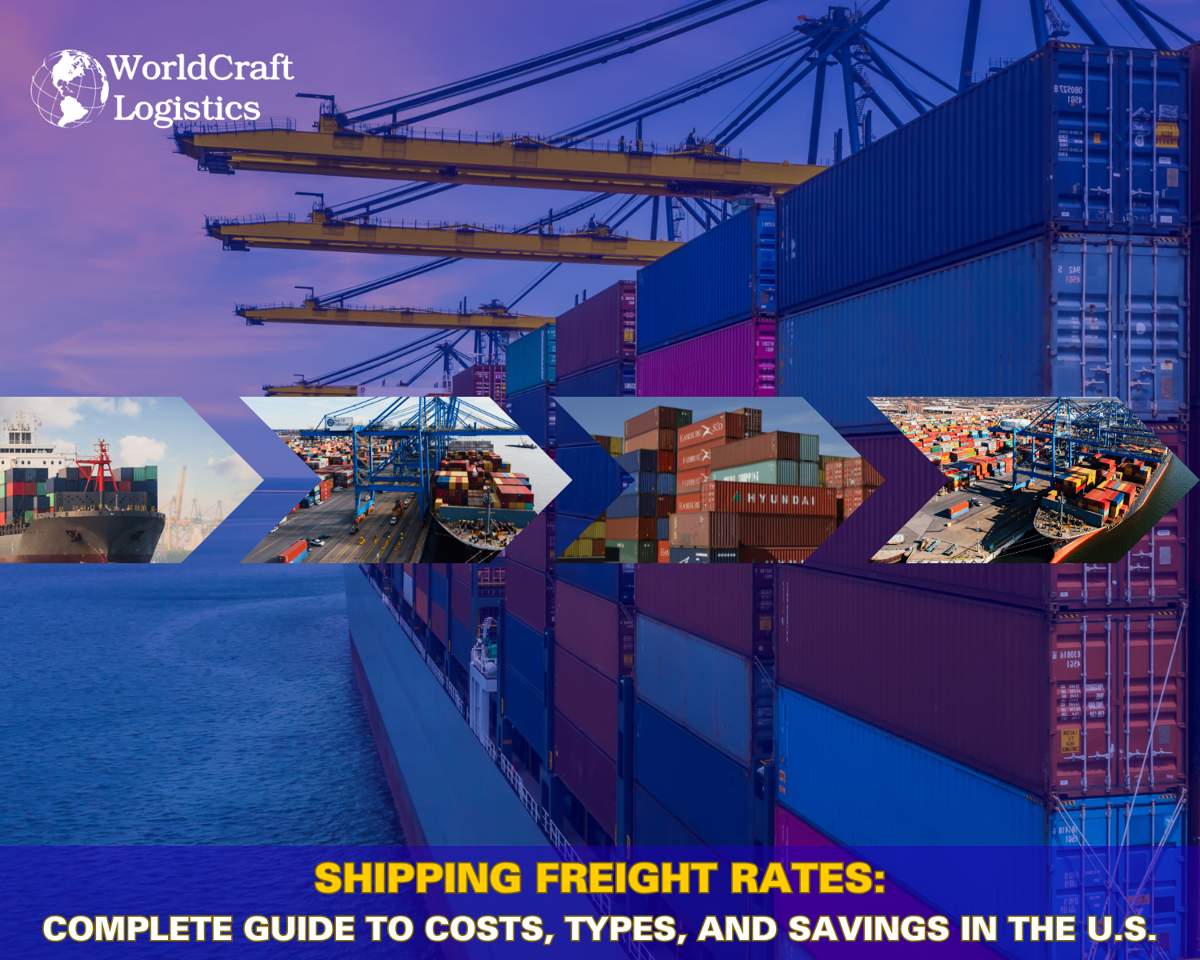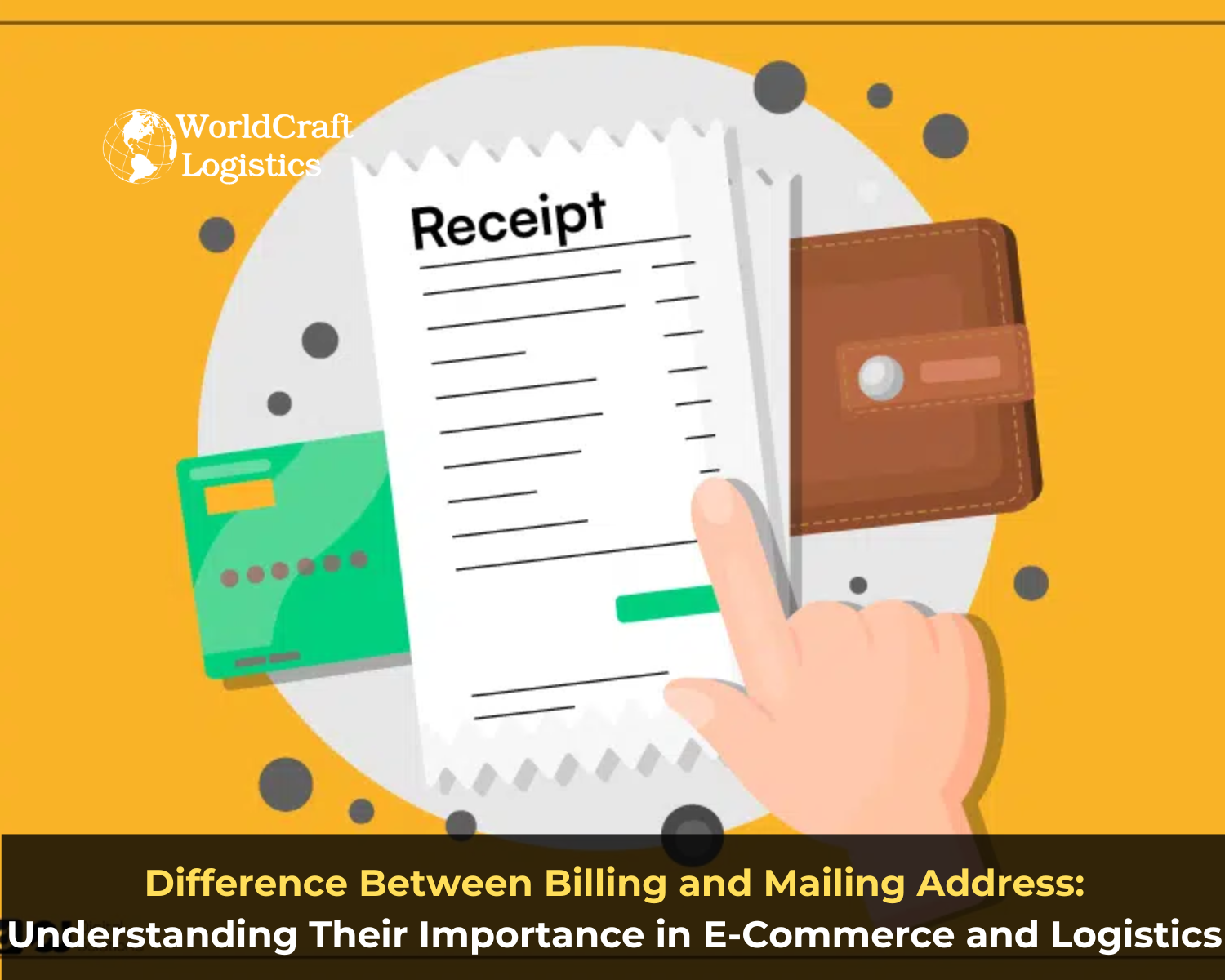
Starting June 1st, 2023 Our warehouse fee will be $0.65/cubic foot per month
In effort to lower the warehouse storage fee during inflation, we have went narrow aisle racking.This construction took us four months but the project is finally completed. With narrow aisle racking, we are able to drop storage by 24%.We as partners will go through this inflation together.
08/28/2024
In the world of e-commerce and logistics, the distinction between billing and mailing addresses is crucial. These two types of addresses play different roles in transactions, and understanding their differences can help businesses streamline operations, improve customer satisfaction, and avoid potential issues. This article will delve into the nuances between billing and mailing addresses, their functions, and their impact on various sectors, including e-commerce and logistics.

A billing address is the address associated with a customer’s payment method, typically a credit or debit card. This address is where the bank or credit card company sends billing statements and is used to verify the identity of the cardholder during transactions.
Key Features of a Billing Address:
Identity Verification: The billing address is used to verify that the person making a purchase is the legitimate cardholder. During the checkout process, the billing address is cross-checked with the address on file with the bank. If there’s a mismatch, the transaction may be declined to prevent fraud.
Billing Statements: This is the location where monthly statements or invoices are sent, although in today’s digital age, many people opt to receive these statements via email.
Legal Documentation: For many services, such as utilities or insurance, the billing address is also used for sending important legal documents and notices.
Importance in E-Commerce: In e-commerce, entering the correct billing address is critical for completing a purchase. Many online platforms use Address Verification Systems (AVS) to compare the billing address provided by the customer with the one on file with the card issuer. If the addresses do not match, the transaction may be flagged as potentially fraudulent.

A mailing address, also known as a shipping address in e-commerce, is the address where a customer wishes to receive their physical goods or correspondence. It can be different from the billing address and is not necessarily linked to the payment method.
Key Features of a Mailing Address:
Delivery of Goods: The primary function of a mailing address is to serve as the destination for physical products purchased online. It’s the address that logistics companies use to deliver items.
Correspondence: Apart from products, a mailing address is also used to receive letters, documents, and other forms of communication.
Flexibility: A customer might use a different mailing address for convenience, such as their workplace or a family member’s address, to ensure they receive their packages without delay.
Importance in E-Commerce: The accuracy of the mailing address is vital for timely delivery. Mistakes in the mailing address can lead to delays, lost packages, or additional shipping costs if the item needs to be redirected.

While both billing and mailing addresses are essential in transactions, they serve different purposes. Understanding these differences is important for both businesses and consumers.
Billing Address: Primarily used for identity verification and sending billing-related communications.
Mailing Address: Used for the delivery of physical goods and correspondence.
Billing Address: Directly linked to the customer’s payment method, such as a credit or debit card.
Mailing Address: Can be any address where the customer wants to receive their goods, independent of the payment method.
Billing Address: A mismatch between the billing address and the one on file can result in a declined transaction.
Mailing Address: Errors in the mailing address can lead to delivery issues, but it does not typically affect the authorization of the transaction.
Read More: 👉 The Master Bill of Lading and the House Bill of Lading

There are several common scenarios where a customer might use different billing and mailing addresses:
Gift Purchases: When buying a gift, a customer might use their home address as the billing address but specify the recipient’s address as the mailing address.
Business vs. Personal Transactions: A customer might use their business address for billing purposes but prefer to have products delivered to their home.
Temporary Relocation: If a customer is temporarily staying at a different location, they might use that address for mailing, while their billing address remains unchanged.
Privacy Concerns: Some customers prefer to keep their billing address private and use a different mailing address to protect their privacy.
In the logistics industry, the differentiation between billing and mailing addresses has significant implications for efficiency and customer satisfaction.
Address Accuracy: Logistics companies rely heavily on the accuracy of mailing addresses to ensure timely deliveries. An incorrect mailing address can lead to significant delays, increased costs, and customer dissatisfaction.
Address Verification: Address Verification Systems (AVS) are employed not only to confirm billing addresses but also to ensure the accuracy of mailing addresses before dispatching goods. This reduces the risk of lost or misdelivered packages.
Address Management Systems: Advanced logistics companies use sophisticated address management systems to track and manage both billing and mailing addresses. This helps in minimizing errors and ensuring that goods and invoices reach the correct destinations.
Impact on Shipping Costs: Errors in mailing addresses can result in additional shipping costs. For example, if a package is sent to the wrong address and needs to be redirected, the sender might incur extra fees.

With the rise of e-commerce and mobile shopping, the role of billing and mailing addresses has evolved, leading to new challenges and opportunities.
Mobile Shopping: As more consumers shop via mobile devices, there’s an increasing need for streamlined address entry processes. Autocomplete features and address validation tools help ensure that both billing and mailing addresses are entered correctly.
Digital Wallets: Digital wallets, such as Apple Pay and Google Pay, store billing information securely, reducing the need for customers to manually enter billing addresses during each transaction. This streamlines the checkout process and minimizes errors.
Address Confidentiality: Privacy concerns have led to the growing use of virtual mailboxes and drop-off locations as mailing addresses. This allows consumers to keep their actual addresses private while still receiving their goods.
Understanding the difference between billing and mailing addresses is essential for both consumers and businesses. While the billing address is primarily used for identity verification and receiving invoices, the mailing address is crucial for the physical delivery of goods. Inaccuracies in either can lead to transaction failures, delivery delays, and increased costs.
For businesses, particularly in the logistics and e-commerce sectors, ensuring that customers understand these differences can lead to smoother transactions and improved customer satisfaction. Employing advanced address management systems and verification tools can help reduce errors and enhance operational efficiency.
As e-commerce continues to evolve, so too will the importance of accurate and secure billing and mailing address management. Businesses that stay ahead of these changes will be better positioned to meet the needs of their customers in an increasingly digital marketplace.
SEO
Digital Marketing/SEO Specialist
Simon Mang is an SEO and Digital Marketing expert at Wordcraft Logistics. With many years of experience in the field of digital marketing, he has shaped and built strategies to effectively promote Wordcraft Logistics' online presence. With a deep understanding of the logistics industry, I have shared more than 500 specialized articles on many different topics.

Education
01/05/2025

Education
02/18/2025

Education
01/01/2024

Education
09/09/2025

Education
08/28/2024